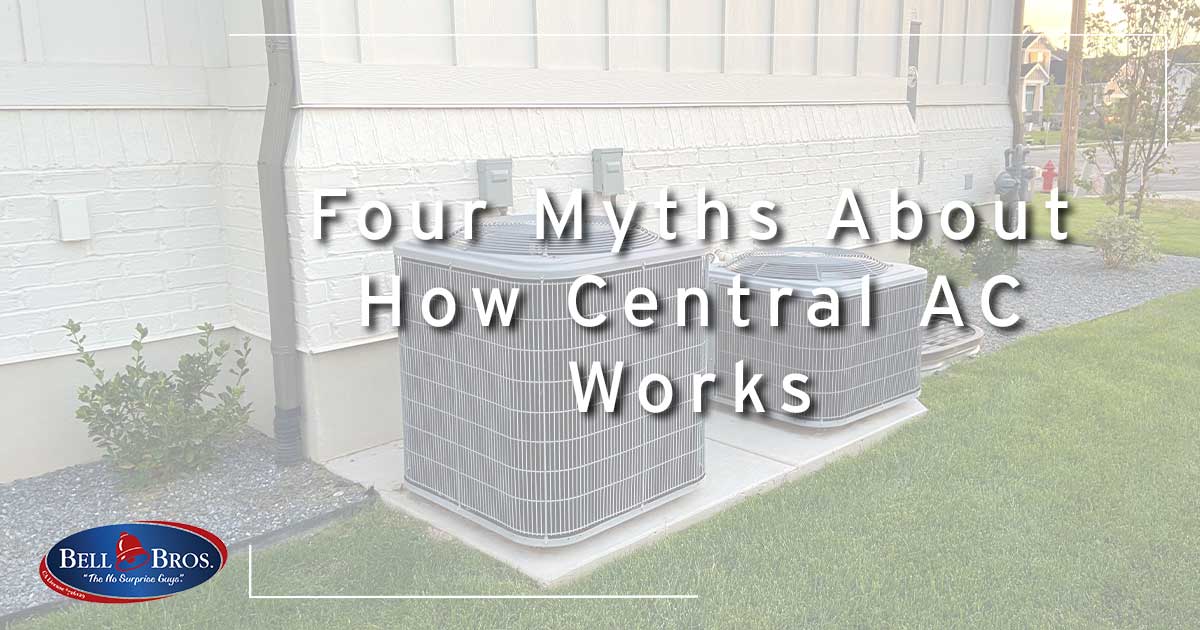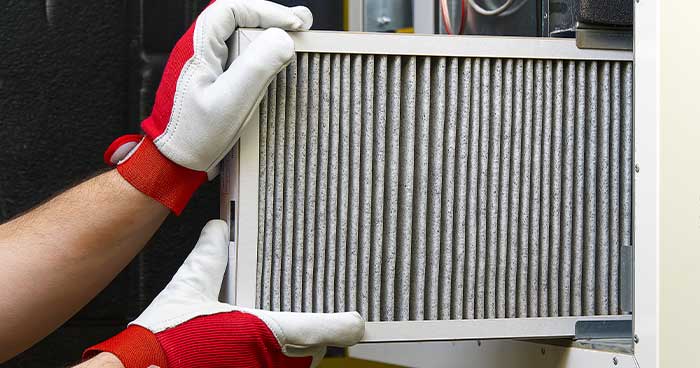Four Myths about How Central AC Works
We love to learn about myths, just not when they’re about your HVAC system. HVAC information isn’t something the average person goes out of their way to find, so we understand why some misconceptions are still around. Today, we’re debunking four myths about how central AC works.
Myth #1: My Air Conditioner Can Take Any Heat Load
Most people in Sacramento and the East Bay shut their windows and doors for a few hours during peak summer hours. The only problem with this is that there ends up being no home ventilation.
We talked about this in our radiant barrier blog post. Radiant energy can make significant changes to the indoor heat or a car, or in this case, your home. For example, it can be 95° outside and by the time you arrive home the indoor temperature has risen to 88°.
We don’t know about you, but 88° is not comfortable. It seems to be a logical step to blast the AC as cool as you can when you get home, right? Well, wrong actually.
Fact:
When your home gets too hot and you set the AC at a very cool level, it forces your system to work overtime. This extra work can add unnecessary strain and stress to your system, use extra energy, and drive up your utility bill.
At Bell Brothers, we recommend running your AC at a higher temperature when you leave the house—especially during peak hours.
A smart thermostat can help you achieve this. Use your phone to set the preferred temperature to 78° or 80°. Then set the thermostat to 75° on the way home, when you then enter your home, you’re entering a nice, cool home without adding extra stress or strain on your system.
Myth #2: A Lower Number on the Thermostat Means Cooler Air
Contrary to popular belief, setting a lower number on the thermostat will not cool your home faster.
We mentioned this a bit above. When your home is warm, sometimes the first instinct is to make it as cold as possible. That way you can find some relief as soon as possible.
Fact:
Central AC works by cooling air 15° to 20° at a time. While this sounds like a fast process, it actually takes some time.
If your indoor air is 80°, your HVAC system will pull that 80° air into the evaporator coil. The evaporator coil treats it and makes it 15° to 20° cooler. However, that bit of treated air mixes with the rest of the untreated ambient indoor air, which is still 80°.
It can take time to condition all the air in your home. Keep in mind, the larger your home, the longer it may take.
Myth #3: I Don’t Need to Change the Air Filter
We can almost count how many HVAC related issues can be traced to an overfull air filter. Regularly checking and replacing the air filter is the best thing you can do for your HVAC system.
The air filter plays an incredibly important role for both your HVAC system and your overall home environment. An air filter keeps dust and other debris from getting into your HVAC system. Too much dust can cause a lot of problems.
The air filter also does the important job of removing particles from your indoor air. Most filters capture, dust, dander, and other allergens. Some filters are so strong they can remove bacterial and viral particles.
Fact:
An overfull air filter can lead a huge number of problems. Some of them include decreased indoor air quality, reduced energy efficiency, reduced air flow, and even early system failure.
Air filters are one of the biggest reasons we are called in for emergency repairs. The next time an HVAC technician is in your home, simply ask them about replacing the air filter. They can assist you if you can’t access the system yourself.
Myth #4: The AC System is an Open System
There’s a lie floating around that central AC works as an open system. Meaning Freon needs to be replaced, or topped off, every year.
Fact:
When an install is done perfectly and homeowners and weather conditions treat the HVAC system with the upmost care, you will never need your refrigerant to be topped off or refilled.
However, we live in a world where things happen. These things include refrigerant leaks. Even a small crack or hole in the line can lead to loss of refrigerant.
When your central AC is low on refrigerant, it means the system isn’t operating at full capacity. Your system won’t be as efficient which could cost you time and money in the long run.
The best way to deal with this is by scheduling a once yearly tune-up for your air conditioner. If you haven’t scheduled your tune-up yet, click here to request an appointment online.




